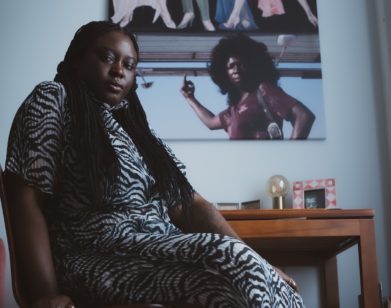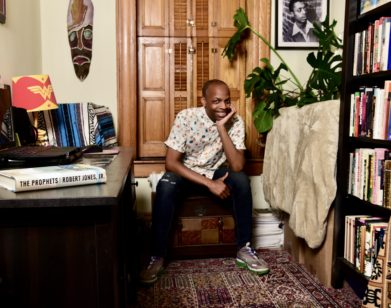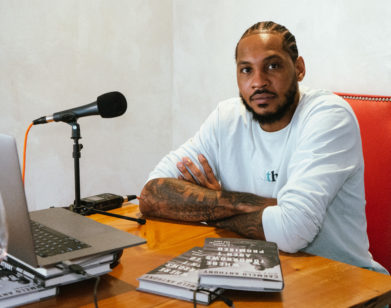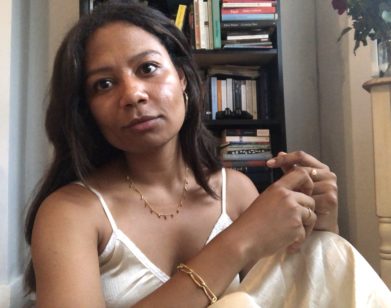rough draft
Akwaeke Emezi Wants to Burn It All Down
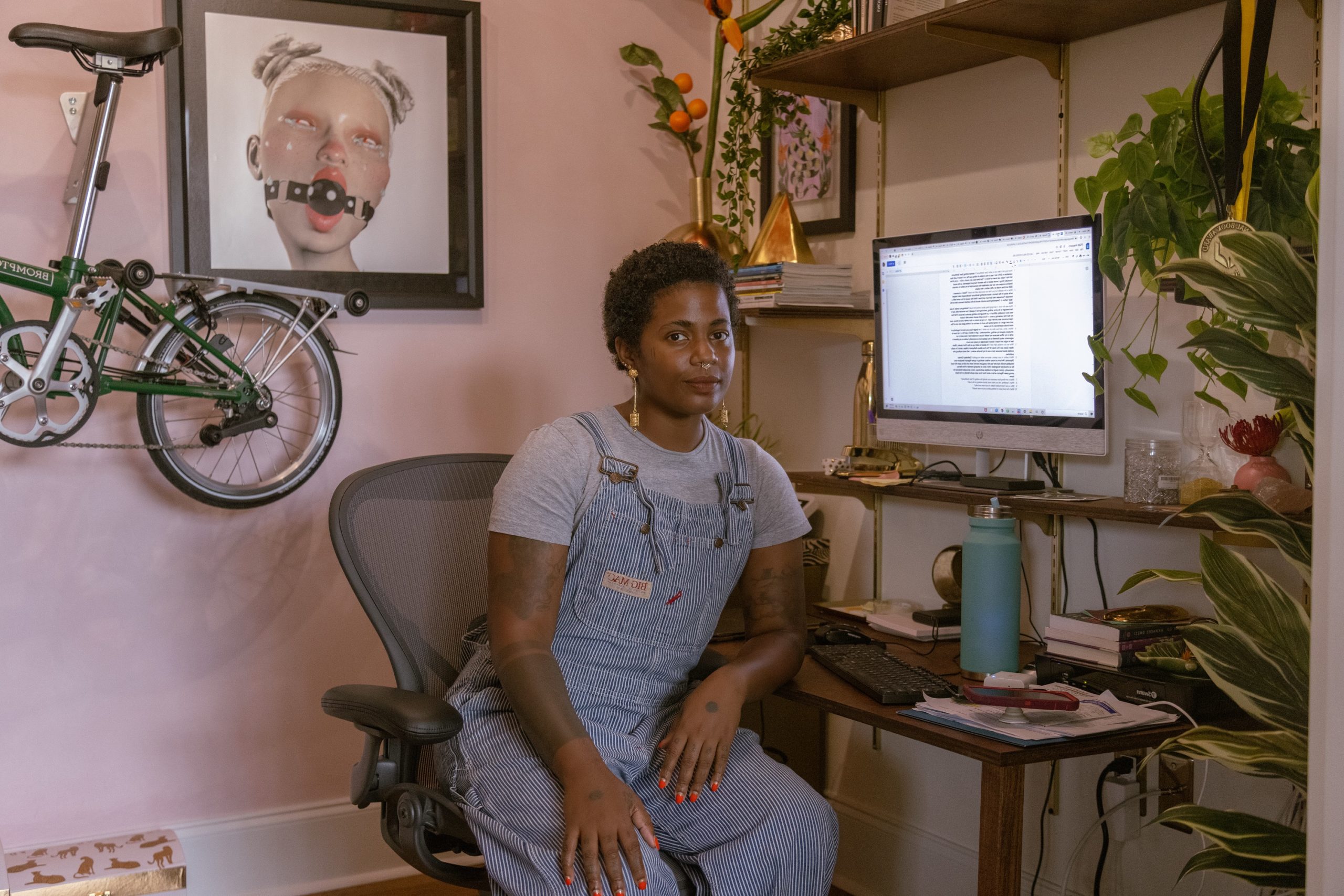
Portrait of Akwaeke Emezi in their home office. Photo by Yagazie Emezi.
This is Rough Draft, in which our favorite writers get to the bottom of their own craft. From preferred writing drinks to whether or not you really need to carry a notebook, we find out all the ways they beat writer’s block and do the work. This week, we sit down with Akwaeke Emezi, the bestselling author of Freshwater, Pet, and The Death of Vivek Oji. Emezi is back this month with Dear Senthuran: A Black Spirit Memoir, a story about body, gender, spirit, and survival that traces the tensions in relationships between people and within ourselves. Below, discover all the elements that helped them get it done.
———
JULIANA UKIOMOGBE: Describe your ideal writing atmosphere. What gets you in the mood?
AKWAEKE EMEZI: I absolutely have to write at home, where I can be in pajamas and close to my snacks. I tried the whole cafe thing and it’s too distracting being around people. Humans are so loud.
UKIOMOGBE: Do you eat or drink while you write? If so, what do you like to have?
EMEZI: I’ll drink water to stay hydrated and nibble on random snacks depending on how long my writing session is, but usually I’m pretty immersed in whatever world I’m working in at the time.
UKIOMOGBE: Do you keep a notebook and/or journal?
EMEZI: I used to journal a lot before my writing career kicked off, but now I don’t because I always have so much writing to do. I solved that problem by writing my memoir, so my journaling could become a book.
UKIOMOGBE: What’s your favorite quote?
EMEZI: This one by Toni Morrison—“I stood at the border, stood at the edge and claimed it as central. Claimed it as central, and let the rest of the world move over to where I was.”
UKIOMOGBE: Do you read while you’re in the process of writing? Which writers inform your current work the most?
EMEZI: I don’t read while writing because my books are greedy with my attention. They want me to stay inside their world, to have it be the last thing I think about before I sleep and the first thing on my mind in the morning. I catch up on my reading in between projects and I read strictly for pleasure at this point.
UKIOMOGBE: How many drafts of one piece do you typically write?
EMEZI: At least three drafts before the manuscript goes into copyediting.
UKIOMOGBE: Who’s your favorite screenwriter? Can a movie ever be as good as the book?
EMEZI: My favorite screenwriter is Tamara P. Carter. Her work transports me to worlds that I’m starving to see on screen. I don’t really compare movies to books because they’re such different experiences. As an author who’s also adapting their own work to screen, I always say that I don’t expect my books to be preserved completely when moving to screen. They exist in their own right as books, and by the time it gets to screen, you’re working collaboratively with a lot of other people for a different creative vision. Sometimes it works out, sometimes it doesn’t. But the book is always there as the book.
UKIOMOGBE: Do you consider writing to be a spiritual practice?
EMEZI: Absolutely. Stories have such power.
UKIOMOGBE: Which writers would you choose to have dinner with, living or dead?
EMEZI: I love this question because I can actually have dinner with the writers I want to! Katherine Agyemaa Agard, Eloghosa Osunde, Tanaïs, Ann Daramola, and Senthuran Varatharajah. The list could go on indefinitely but these are some I know I can have spirit-first conversation with.
UKIOMOGBE: What advice do you have for people who want to be better writers?
EMEZI: Learn to keep writing even when it’s not fun. The discipline will take you further than anything else.
UKIOMOGBE: What are some unconventional techniques you stand by?
EMEZI: I don’t outline any of my work. I tried it before and it made me so bored with the process since there was no discovery left, so now I just dive in and let the stories unfold as I write them, which keeps me infinitely more interested in the work.
UKIOMOGBE: Can great writing save the world?
EMEZI: Eh. Storytelling is important, sure, but it is people organizing and building radical communities that will bring liberation and a better world our way. Instead of trying to save this world, consider burning it to the ground and creating something else. Stories can help with that.

